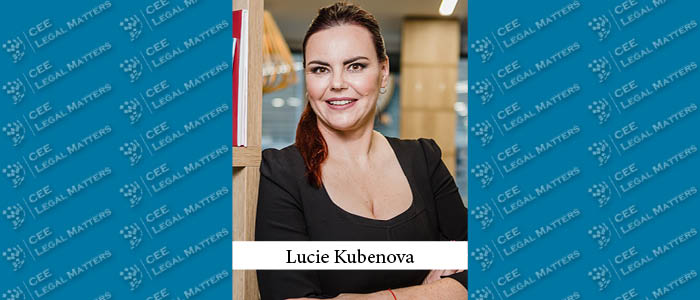In the Serbian market, contractual penalties are often included in employment contracts since this is concrete and efficient protection for the employer in case of a breach of certain contractual obligations by employees. On a general note, a contractual penalty is a fixed monetary receivable that can be claimed in case of a breach of contractual obligations by one party, without having to prove the actual amount in damages. However, in the area of labor law, there is still uncertainty when it comes to the validity of such clauses and their enforceability in case of disputes.
Ukraine: Ensuring Employees’ Safety During Air Strikes
Considering the ongoing martial law in Ukraine and frequent air strikes in various parts of the country, more and more employers are becoming concerned about whether they should adopt measures to protect their personnel or provide shelter, and what the liability if these obligations are not fulfilled would be.
Bosnia and Herzegovina: Signing of Management Contracts in Practice
The need for management contracts arises when an employer needs to arrange for a relationship beyond that of one with a simple employee – one with an individual performing managerial or supervisory tasks. Therefore, the relevant labor laws (in the Federation of Bosnia & Herzegovina, Republika Srpska, and Brcko District of Bosnia & Herzegovina) introduce management contracts that offer an alternative for the employer to conclude an agreement with a manager without establishing actual employment. The aim is for a more flexible arrangement of said business relationship or established employment which is absolutely subject to the provisions of the relevant labor laws.
North Macedonia: Adapting to Economic Challenges – Exploring Remote Work and Cost-Cutting Strategies
In recent times, the global economic landscape has raised concerns about the potential onset of a recession. Consequently, businesses operating in North Macedonia are proactively seeking strategies for cost reduction and organizational restructuring.
Lithuania on the Path to Energy Independence
Many might be surprised these days, but when Lithuania joined the EU in 2004, it was an electricity exporter, producing more energy than it consumed. The Ignalina Nuclear Power Plant was operational, and Lithuanian consumers were unaware of potential concerns over electricity prices.
Revised Labor Migration Rules in Lithuania
The regulatory framework of the Lithuanian labor market underwent several important updates. Most of these developments are concerned with regulating labor migration.
An Overview of Intellectual Property Practices in Lithuania
Lithuania’s intellectual property (IP) market is active in the area of trademarks and copyright, with businesses and creators starting to understand the value of IP protection. This trend does not yet extend to patents, but trade secrets are a highly litigated area, and their protection is broader than ever.
Guest Editorial: The Captivating Field of Lawyering in CEE
Welcome to the captivating field of lawyering in Central and Eastern Europe (CEE), where challenges and opportunities intertwine in an ever-changing landscape. With over 24 years of experience, I have had a front-row seat to witness the remarkable journey of the legal profession in this region. In this article, I’ll share my personal reflections on lawyering in CEE, discussing its progress, setbacks, and the exciting trends that have shaped its course.
Navigating Hardships: When Things Go Awry
At the CEE Legal Matters GC Summit in Istanbul, legal experts from across the region and beyond tackled the importance of crisis management – even when nothing is burning. Summit attendees were briefed on how companies can navigate gray areas, manage global supply chain disruptions, and, overall, be prepared for whatever comes their way.
Beyond Banks: Non-Banking Financial Landscape in CEE
Tuca Zbarcea & Asociatii Partner Gabriela Anton, Gecic Law Counsel Miodrag Jevtic, ACI Partners Head of Banking/Finance Marina Zanoga, Avellum Managing Partner Mykola Stetsenko, NazaIi Tax & Legal Partner Nilay Goker Duran, PRK Partners Senior Attorney-at-Law Norbert Hink, and Schoenherr Bulgaria Local Partner Tsvetan Krumov look at how the financial services landscape in the CEE region has been shifting, as local non-banking financial institutions (NBFIs) are gradually gaining ground in an area historically dominated by the banking sector.
The Corner Office: The Summer Slowdown
In The Corner Office, we ask Managing Partners at law firms across Central and Eastern Europe about their backgrounds, strategies, and responsibilities. As the summer is likely to bring a brief lull, this time we asked: How do you tend to use the general downtime during the month of August?
CEELM Top 10: Most-Read Interviews
The CEELM Top 10 series looks back over the past ten years and celebrates the milestones we have achieved together. The list below highlights the most-read interviews, with a short description of each.
ESG Takes Center Stage in Shaping the Czech Real Estate Market
With ESG having been a buzzword in the Czech real estate market for a few years now, Clifford Chance Partner Emil Holub, Kocian Solc Balastik Partner Jiri Hornik, VIDD Partner Ondrej Hampl, Taylor Wessing Counsel Radka Nenickova, and Act Legal Czech Republic Partner Tomas Slaby look at how ESG principles are being applied in practice and in what areas there is still room for improvement.
Inside Insight: Interview with Lucie Kubenova of Pfizer
Pfizer Eastern Europe Cluster Legal Lead and Legal Director Lucie Kubenova talks about her career leading to her current role and managing her team at Pfizer.
Inside Insight: Interview with Karol Marsovszky of Skoda Group
Skoda Group General Legal Counsel Karol Marsovszky talks about the Skoda Group’s legal team and what shapes his in-house team’s workload.
ESG: The Time to Prepare is Now!
The impact and perception of ESG considerations in the CEE region, and specifically in the Czech Republic, is still in the early stages of its evolutionary path, compared to, say, the U.K., the U.S., or larger Western European economies. There is certain skepticism and uncertainty as to what this new trendy acronym means and if, at the end of the day, it will really impact a Czech industrial family business, a hotel, or a high-tech start-up. ESG considerations, policies, and metrics are likely to be more familiar (and implemented to a certain degree) to a large Czech company – moreover, when it’s a part of an international corporate group – rather than a smaller Czech enterprise, but of course, there are exceptions to the rule.
New Obligations Related to the Introduction of Whistleblowing in the Czech Republic
After several unsuccessful attempts, the Czech Republic has finally adopted a law that introduces institutional protection for whistleblowers in accordance with European legislation. The Whistleblower Protection Act (Act) will come into force on August 1, 2023.
Know Your Lawyer: Jonathan Weinberg of White & Case
An in-depth look at Jonathan Weinberg of White & Case covering his career path, education, and top projects as a lawyer as well as a few insights about him as a manager at work and as a person outside the office.

































